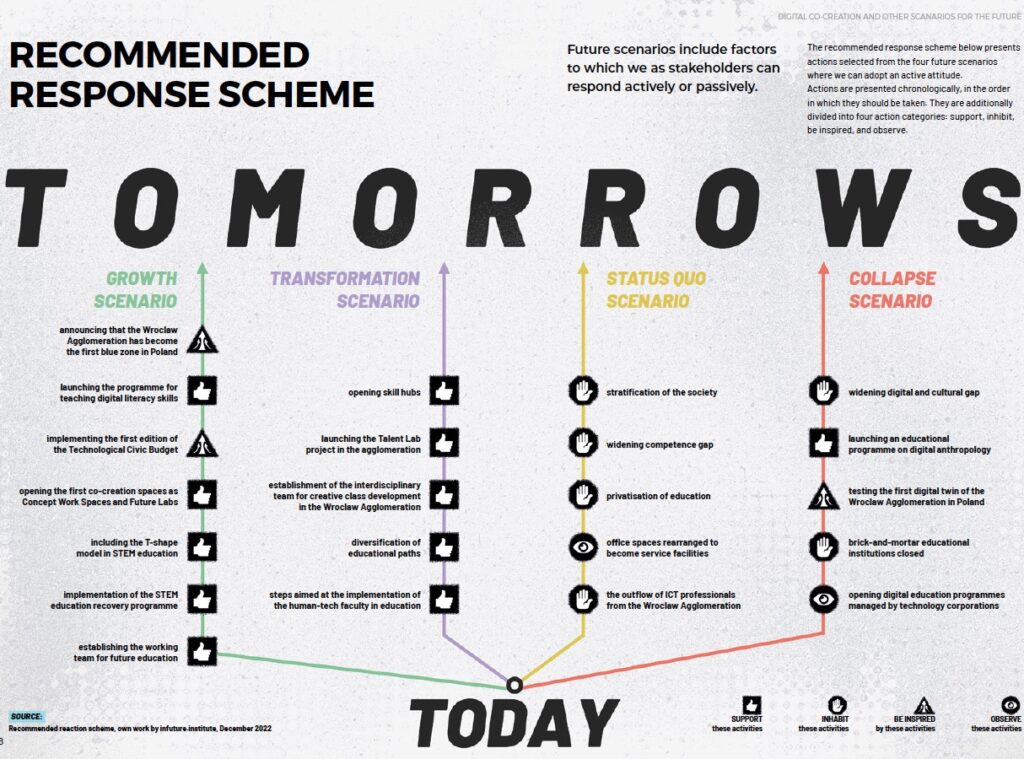Digital Co-creation and other scenerios for the future
In the modern world, each business is a technology company. The ICT industry, being a horizontal industry, can directly influence the solution of global problems. However, branches do not operate in a void. To realize their full potential, cooperation is essential. That is why in this report we focus on the entire ecosystem, the elements of which (education, the city and the ICT industry) co-function and as a whole define the development of the industry in the Wroclaw Agglomeration. In addition, in the report you may find a model outlining the city’s distinctive features relevant to the paradigm shifts – the transition from a city as a place to work to a city as a place to live.
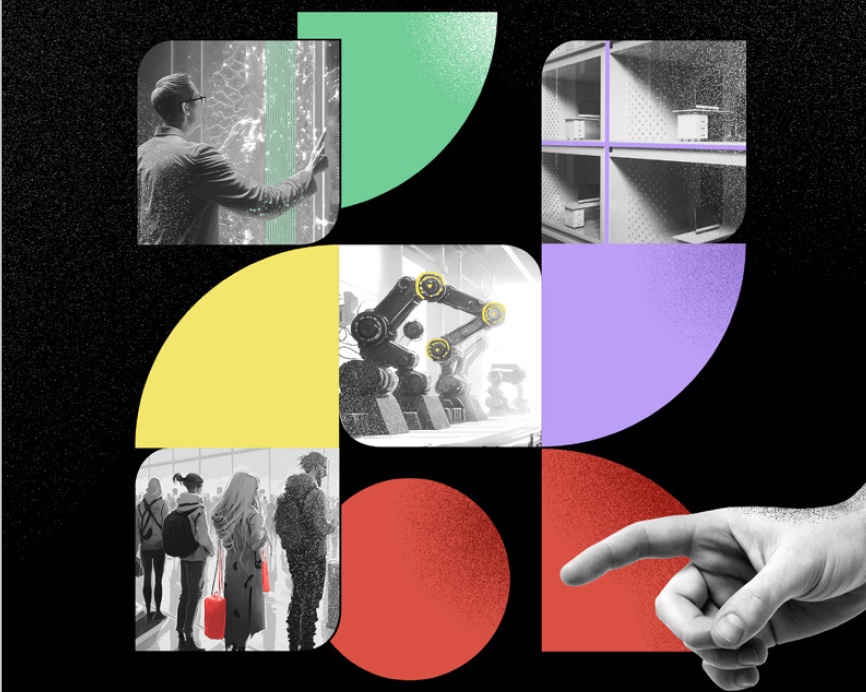
As part of its work on the project, infuture.institute has conducted an analysis of historical signals of change (in-depth analysis of the existing data, reports, articles and other sources on the future of ICT) and the following qualitative and quantitative studies:
- a cycle of three research workshops
- interviews with experts
- A cycle of quantitative research
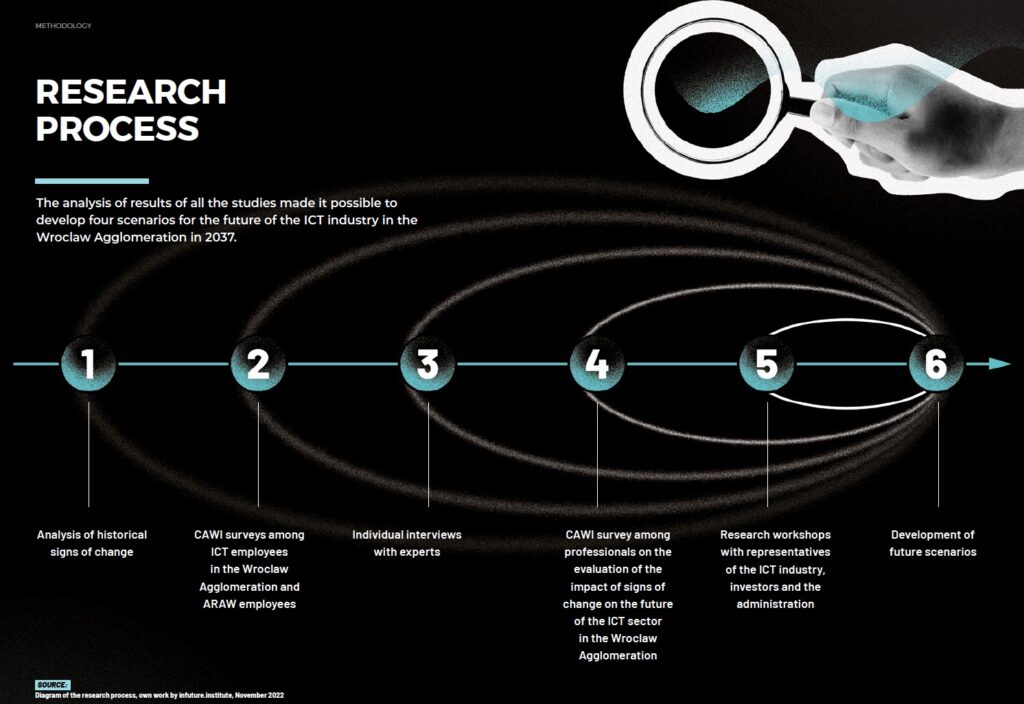
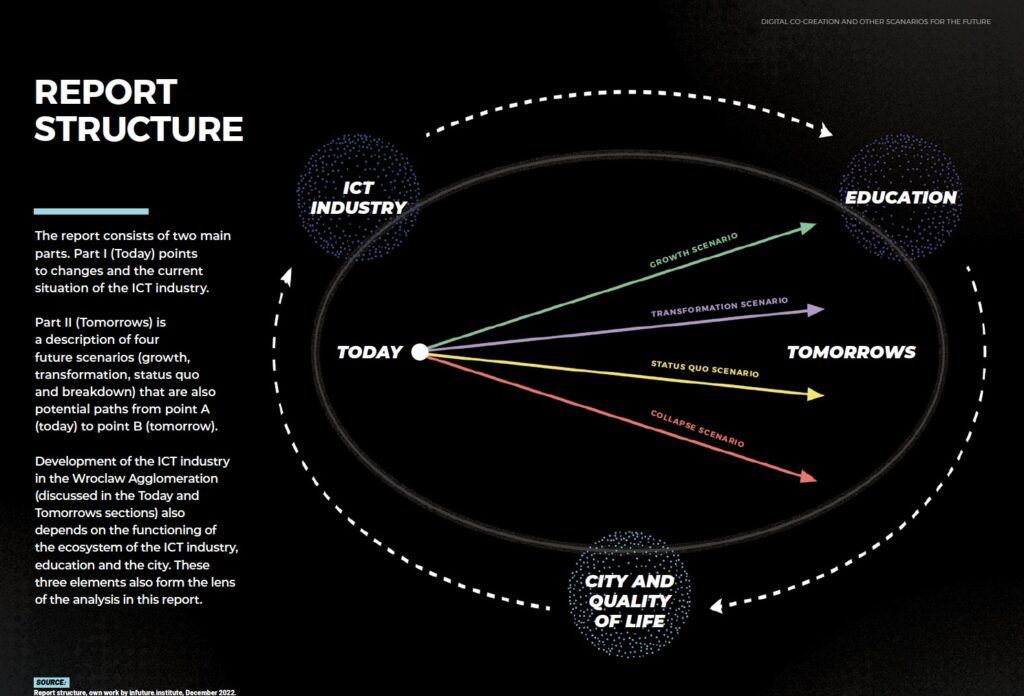
Cooperation for the future
The future is the direct consequence of actions taken here and now. Such actions currently focus on the short term and current activities. Their long-term consequences are rarely assessed (within the next few years, more than a decade or even a few decades).
Tomorrows. Assumptions of future scenarios
Future scenarios are a tool used in strategic management that makes it possible to understand better how to function in a specific reality. Scenarios are not to be considered prophecies to be fulfilled but rather as certain visions of the future, a strategic exercise thanks to which one can identify potential opportunities and threats and answer questions about what to implement, what steps to take and which technologies to apply to take responsibility for building a sustainable future.
In other words, the scenarios point to the need for a discussion about how to prepare for potential changes, especially if these are discontinuous changes (i.e., not being a continuation of the phenomena and processes taking place in the past), how to develop the best action strategy and how to reach a consensus in the event of a divergence of opinions. The role of future scenarios is also to indicate the joint responsibility of various interested parties for their support or inhibition.
Based on the analyses and conclusions of the research process, four future scenarios were developed for the ICT industry in the Wroclaw Agglomeration. The time perspective adopted for the scenarios is the year 2037.
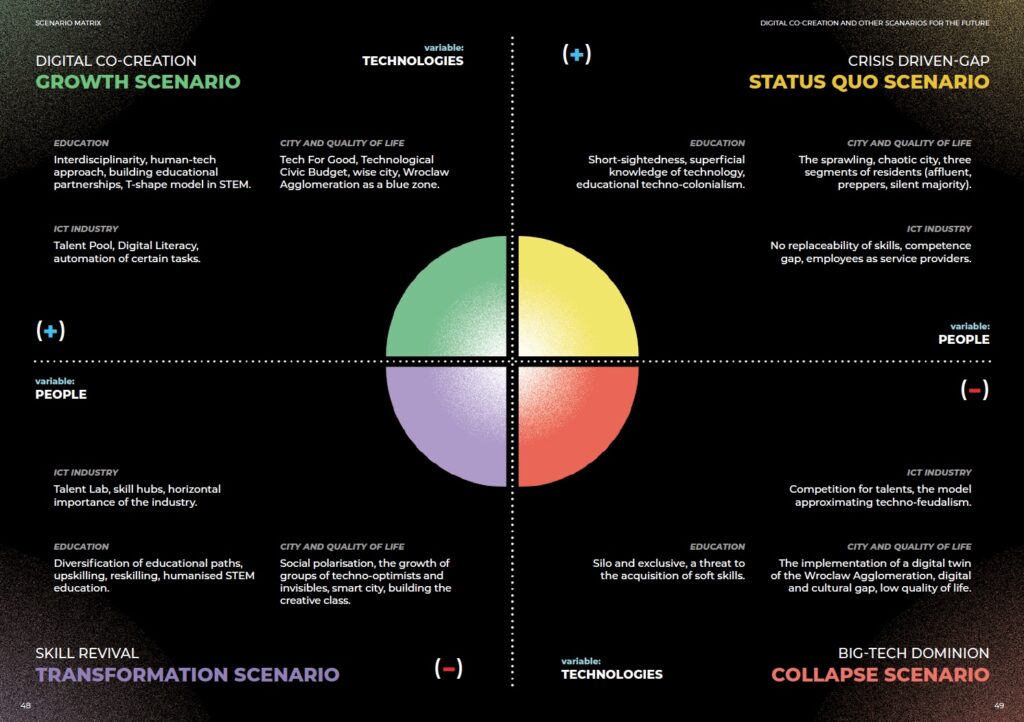
Recommended Response Scheme
Future scenarios include factors to which we as stakeholders can respond actively or passively. The recommended response scheme below presents actions selected from the four future scenarios where we can adopt an active attitude. Actions are presented chronologically, in the order in which they should be taken. They are additionally divided into four action categories: support, inhibit, be inspired, and observe.
